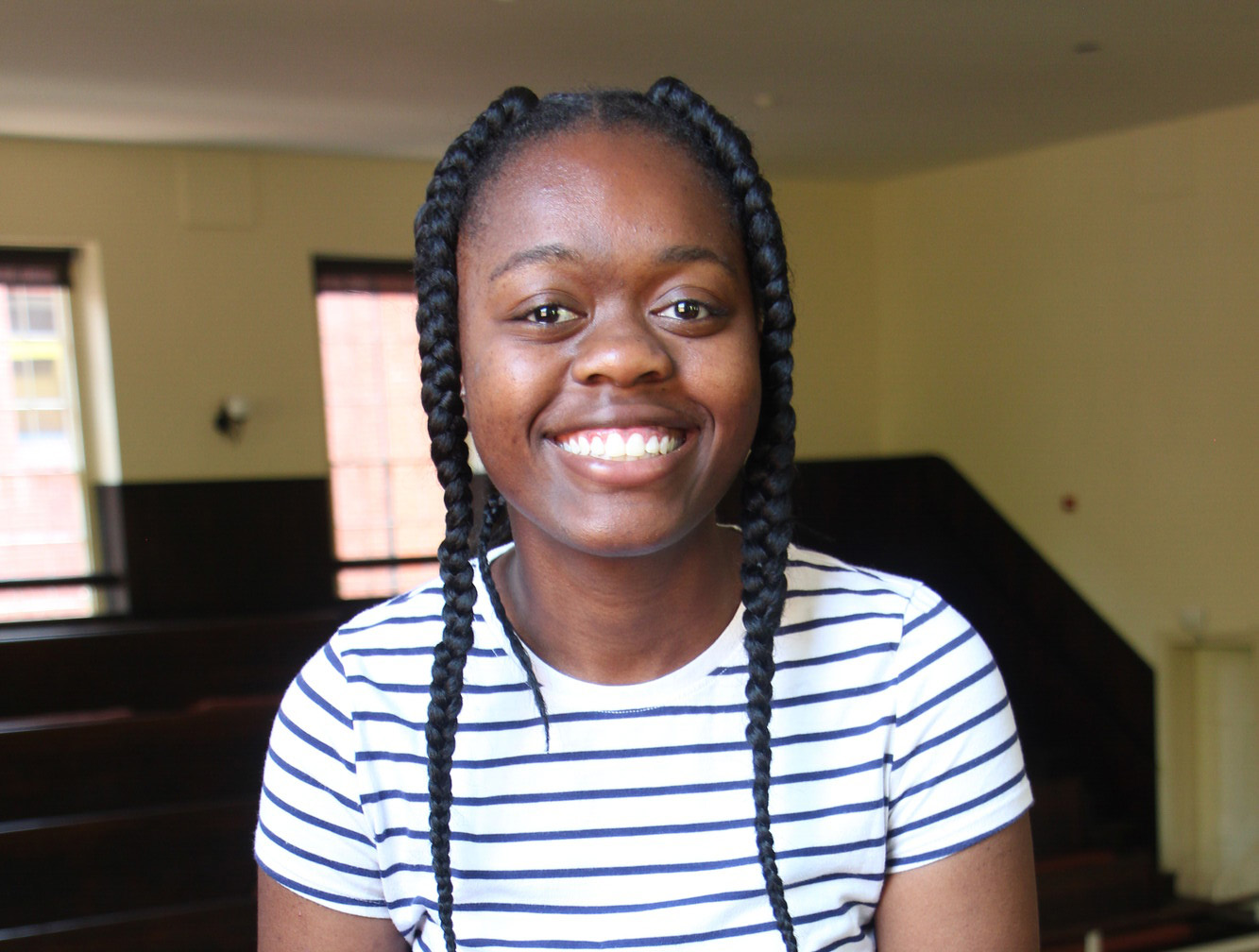
Photo: Yazeed Kamaldien/AFSC
For Madeyson Dyce, a student at Guilford College and a participant in the Emerging Leaders for Liberation program, art creates a sense of possibility and solidarity. “When people are creating together, they’re learning about each other and connecting. When we use art to express our vision for a better world, we’re taking the first step to making that world real, and we often realize just how much we have in common.”
Madeyson has had an interest in the power of art since she was selected as a Futurist Fellow, a program that supports emerging leaders to make change through an Afrofuturist lens. When she joined the ELL program, Madeyson saw an opportunity to build on what she had learned in the fellowship and to develop opportunities for community art-making.
She also saw possibilities for social action, a way to foster solidarity among different social identities, a means of empowering marginalized people, and a way for a group to learn together about connection and intersection in social justice.
Madeyson’s first project – organizing a group of 12 students to draw a racial justice-themed work on campus on October 20 – was a major learning opportunity. “Planning was stressful. There were so many details to worry about, but seeing people working in community and growing together, it was really worth the stress. And, now we have this powerful creative work that reminds us of the work we have to do.”
As the drawing emerged, Dyce witnessed powerful learning, with the participants sharing and reflecting on what their identities, and what racial justice, meant to them. “I think this gave students a chance to seek control of their own lives and stand up against injustice.”
Dyce was particularly grateful for the support that AFSC gave her throughout the process. ELL Program Director Mariana Martinez helped Madeyson think through the project from the start, and overcome the obstacles she faced in bringing it to life.
The piece stands on the Guilford campus as an affirmation of Quaker values, like struggling for equality and working in community. And Dyce sees it as just the beginning of her work. She’s looking for new ways to embed liberatory creativity into the Guilford campus. “We have a regular paint and sip event, and I want students to think of that as an opportunity to express themselves on deeper issues. Painting flowers and clouds is nice, but what if we were expressing our identities, or painting our just and equitable future instead?”